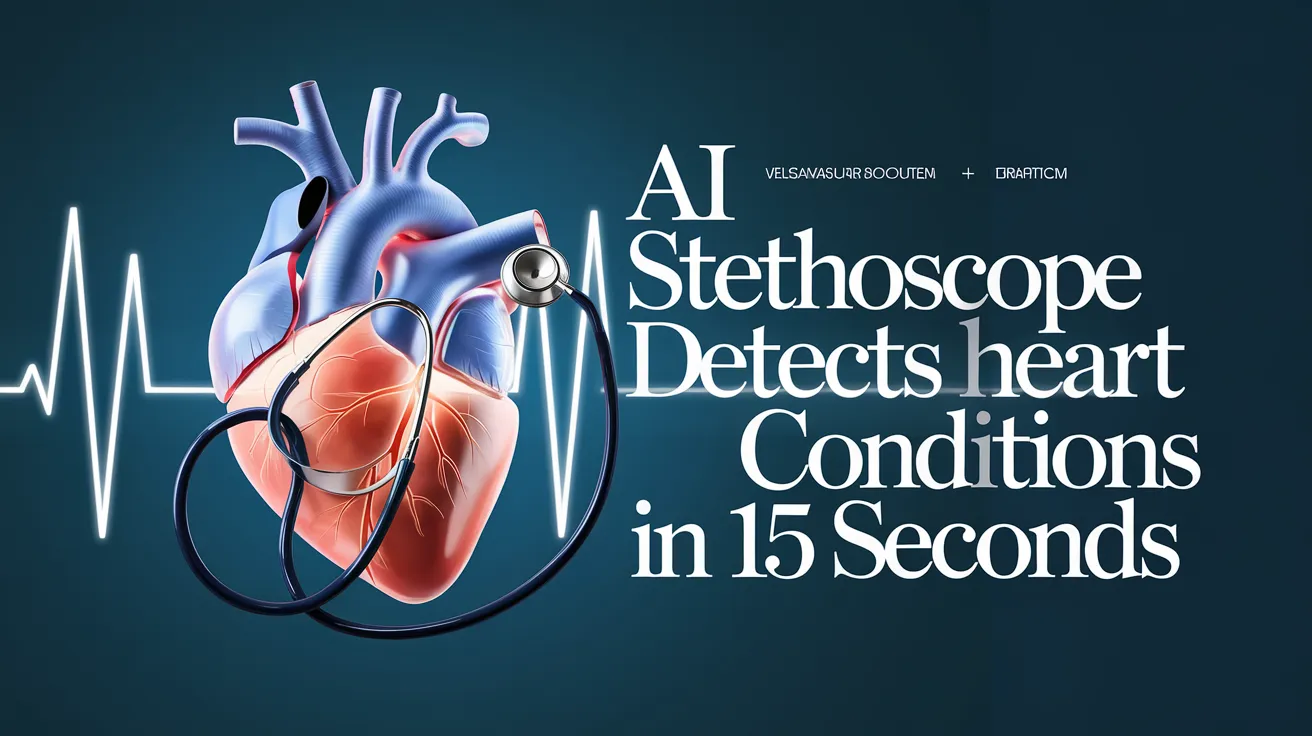AI Stethoscope Detects Heart Conditions in 15 Seconds

Doctors have announced the successful development of an artificial intelligence-led stethoscope capable of detecting three significant heart conditions in as little as 15 seconds. Traditionally invented in 1816, the stethoscope has been an essential tool for healthcare professionals for over two centuries. This new iteration, designed by researchers at Imperial College London and Imperial College Healthcare NHS Trust, upgrades the traditional device with AI capabilities, enabling it to diagnose heart failure, heart valve disease, and abnormal heart rhythms almost instantly.
How the AI Stethoscope Works
The innovative stethoscope can analyze minute variations in heartbeat and blood flow that are undetectable by the human ear, simultaneously taking a rapid ECG. This breakthrough, which could significantly improve the early diagnosis of these conditions, was presented to thousands of doctors at the European Society of Cardiology annual congress in Madrid, the largest heart conference globally. Early detection is crucial for these health issues, allowing for life-saving medications to be administered sooner and averting severe complications.
Study Results and Impact
A clinical study conducted with around 12,000 patients across 200 GP surgeries in the UK showed that patients examined using the new AI stethoscope were twice as likely to receive a diagnosis of heart failure compared to those who were not assessed with the innovative tool. They were three times more likely to be diagnosed with atrial fibrillation, a condition that can heighten the risk of strokes, and nearly twice as likely to be identified with heart valve disease.
Dr. Patrik Bächtiger from Imperial College London’s National Heart and Lung Institute emphasized the significance of the stethoscope’s revolutionary design after 200 years of unchanged functionality. He stated, “It is incredible that a smart stethoscope can be used for a 15-second examination, and then AI can quickly deliver a test result indicating whether someone has heart failure, atrial fibrillation or heart valve disease.”
Technical Details and Security Considerations
The device, manufactured by California company EkoHealth, operates at a size comparable to a playing card. It is placed on a patient’s chest to record an ECG of the heart’s electrical signals while simultaneously capturing the sound of blood flow. This data is sent to a secure cloud storage for analysis by AI algorithms capable of discerning subtle heart issues that may elude human detection. Following analysis, results are sent back to health professionals via smartphone.
Despite its advantages, the AI stethoscope presents some risk; there is a higher possibility of misdiagnosis, where patients may be incorrectly informed they have a condition when they do not. Researchers cautioned that this technology should be utilized for those exhibiting symptoms of suspected heart problems rather than for routine checks on healthy individuals. However, it has the potential to save lives and reduce healthcare costs by enabling earlier diagnoses.
Experts Weigh In on the Breakthrough
Dr. Mihir Kelshiker, also from Imperial College, noted that most heart failure patients are only diagnosed when they arrive at the emergency department in critical condition. This trial reveals that AI-enabled stethoscopes could transform this landscape, providing a streamlined method for GPs to identify problems early, thereby ensuring patients receive prompt and appropriate treatment.
Dr. Sonya Babu-Narayan, Clinical Director of the British Heart Foundation, stated that earlier diagnoses could grant individuals access to vital treatments, allowing them to maintain better health over time. Professor Mike Lewis from the National Institute for Health and Care Research (NIHR) commended the device as a significant tool for patients, bringing urgent innovation into the hands of local clinicians.